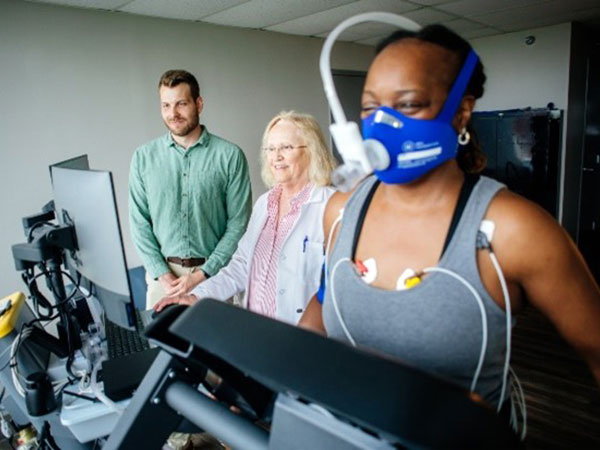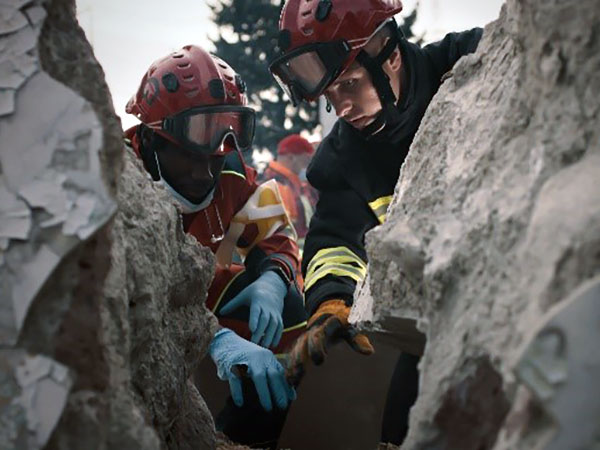Employers of recent UAB School of Public Health graduates reported that our students are more prepared to work with diverse populations in a respectful or sensitive manner than graduates from other institutions. Employers also reported a high level of satisfaction with our students’ ability to strengthen, support and mobilize communities and partnerships and to assess and monitor population health status and community needs.
A degree in public health opens a range of career opportunities in both the public and private sectors. The National Association of County and City Health Officials (NACCHO) reports that local health departments need a 70% increase in their full-time public health workforce to provide the minimum services necessary to sustain the public health system. The government public health workforce anticipates a large number of retirements in the coming years, and these positions will need to be filled.
This shortage of public health workers means that career opportunities for students trained in public health are exceptionally strong and will continue to grow in the future. The field of public health is rapidly changing and expanding, leading to new opportunities for students trained at accredited schools of public health.
All students at the University of Alabama at Birmingham have access to the university’s Career Center opens a new website, which offers resources and support to students in career planning and partners with the School of Public Health to offer tailored career advice.
What Can You Do with a Public Health Degree?
- Epidemiologist
- Community Health Worker
- Industrial Hygienist
- Biostatistician
- Emergency Preparedness Specialist
- Program Manager
-

Epidemiologists investigate the causes of diseases and the patterns associated with their transmission and outcomes. In addition to collecting data and creating complex analytical models to determine how diseases are spreading and who is being affected, epidemiologists also make suggestions on how to mitigate the spread of disease in a community. Epidemiologists can study multiple types of diseases, or they might specialize in an area such as infectious diseases, environmental health, chronic diseases or genetic disorders.
Workplace Environment: Epidemiologists typically work in an office or a laboratory and may be employed by government agencies, such as the CDC, state or local health departments, universities, hospitals or pharmaceutical companies. Some jobs may also involve field work to collect specimens or data directly where an outbreak is occurring.
2023 Median Pay: $81,390 per year
Typical Entry Level Education: MPH in Epidemiology or MSPH in Applied Epidemiology
Related Educational Opportunities: PhD in Epidemiology, Applied Biostatistics and Epidemiology Certificate
Job Outlook, 2022-2032: 27% growth
-

Community health workers (CHWs) serve as a link between healthcare or social services and underserved community members, implementing programs to provide health education and to improve access to care. These workers often have close ties to the populations that they serve and work to reduce health inequalities by connecting clients with appropriate services and resources or advocating for their needs.
Workplace Environment: CHWs are typically employed by local or state health departments, healthcare facilities, community-based organizations or nonprofits. While they often spend part of their time in an office setting, much of their time is spent in the field working directly with community members.
2023 Median Pay: $48,200 per year
Typical Entry Level Education: BS in Public Health
Related Educational Opportunities: MPH in Health Behavior, Public Health Certificate
Job Outlook, 2022-2032: 14% growth
-

Industrial hygienists protect occupational health and safety by recognizing and anticipating workplace hazards that may cause injury or illness, which can include everything from loud noises that may damage hearing to chemical agents that are harmful to human health or the environment. Industrial hygienists also use analytical methods to conduct occupational exposure assessment, ensure that safety standards and regulations are met and implement protocols to eliminate or control occupational hazards.
Workplace Environment: Industrial hygienists work in indoor and outdoor settings that can include places like factories, construction sites or offices. Their roles often involve travel and fieldwork and can place them in hazardous environments where personal protective and safety equipment are required.
2023 Median Pay: $77,580 per year
Typical Entry Level Education: MSPH in Industrial Hygiene
Job Outlook, 2022-2032: 13% growth
-

Biostatisticians apply advanced statistical reasoning and methodologies to understand health data from clinical trials or population studies and to address problems in public health. Not only do biostatisticians interpret the results of statistical analyses—such as determining whether a drug is effective—they also determine appropriate statistical methods for a given study and translate data for scientific and non-scientific audiences. Biostatisticians often collaborate with other researchers and health experts to investigate public health issues.
Workplace Environment: Biostatisticians are employed in various settings including universities, healthcare facilities, pharmaceutical companies or governmental agencies. Much of their time is spent working on computers in offices or research facilities.
2023 Median Pay: $104,860 per year
Typical Entry Level Education: MS in Biostatistics or MSPH in Biostatistics
Related Educational Opportunities: DrPH in Biostatistics, PhD in Biostatistics, Applied Biostatistics and Epidemiology Certificate
Job Outlook, 2022-2032: 30% growth
-

Emergency preparedness specialists play a vital role in responding to natural disasters and other emergencies by assessing the needs of the community after a disaster takes place and ensuring that needed supplies and partner agencies are ready to be dispatched. Emergency preparedness specialists also create and communicate emergency response plans and organize training for others involved in response efforts. When an emergency or natural disaster occurs, they alert appropriate agencies or partners and coordinate the emergency response.
Workplace Environment: Emergency preparedness specialists work for health departments, hospitals, government agencies or nonprofits that are active in disasters. While the day-to-day work of an emergency preparedness specialist often takes place in an office environment, responding to a disaster typically involves traveling to the disaster site and working flexible hours.
2023 Median Pay: $65,786 per year with the potential to earn a median salary of $83,960 as a director
Typical Entry Level Education: BS in Public Health with a concentration in Environmental Health Sciences
Related Educational Opportunities: DrPH in Preparedness Leadership (starting Fall 2025), MPH in Environmental Health
Job Outlook, 2022-2032: 3% growth
-

Program managers plan, implement and evaluate programs or initiatives to address public health issues in a certain community or region. They might organize programs focused on a specific goal, such as HIV/AIDS education, or they might work to address broader issues related to global health, maternal and child health, etc. Program managers are often responsible for adhering to a budget and obtaining funding, tracking progress of projects and communicating and collaborating with various agencies, healthcare providers or stakeholders.
Workplace Environment: Public health program managers may work for state or local health departments, clinics, nonprofits, government agencies or universities. Their work typically involves a combination of office work and travel to various locations across the community or region to implement the programs they have planned.
2023 Median Pay: $58,000 per year as a manager at a small agency with the potential to earn $100,000+ as a director of a program at a large agency
Typical Entry Level Education: BS in Public Health
Related Educational Opportunities: MS in Global Health, MPH in Health Policy and Organization, and many other MPH concentrations
Job Outlook, 2022-2032: Varies by sector and area of specialization